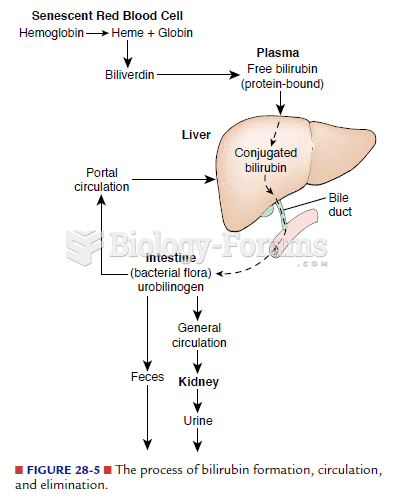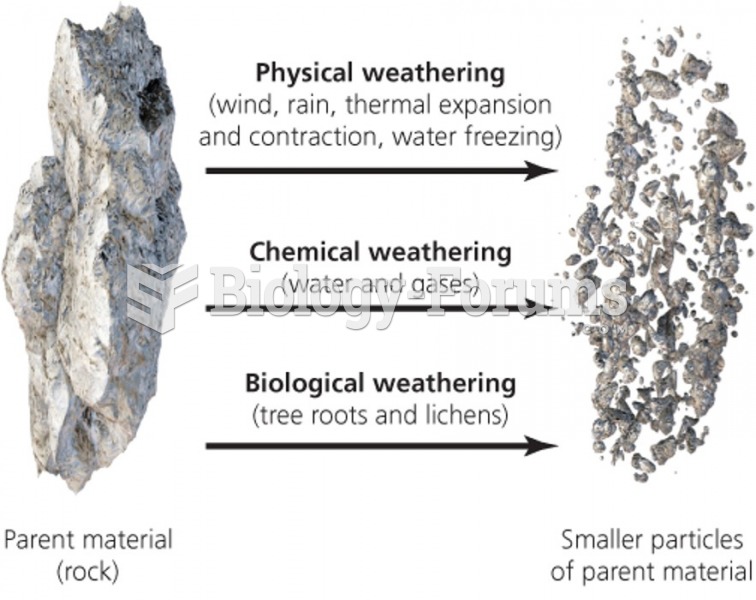|
|
|
By definition, when a medication is administered intravenously, its bioavailability is 100%.
To combat osteoporosis, changes in lifestyle and diet are recommended. At-risk patients should include 1,200 to 1,500 mg of calcium daily either via dietary means or with supplements.
It is difficult to obtain enough calcium without consuming milk or other dairy foods.
The toxic levels for lithium carbonate are close to the therapeutic levels. Signs of toxicity include fine hand tremor, polyuria, mild thirst, nausea, general discomfort, diarrhea, vomiting, drowsiness, muscular weakness, lack of coordination, ataxia, giddiness, tinnitus, and blurred vision.
When blood is exposed to air, it clots. Heparin allows the blood to come in direct contact with air without clotting.







